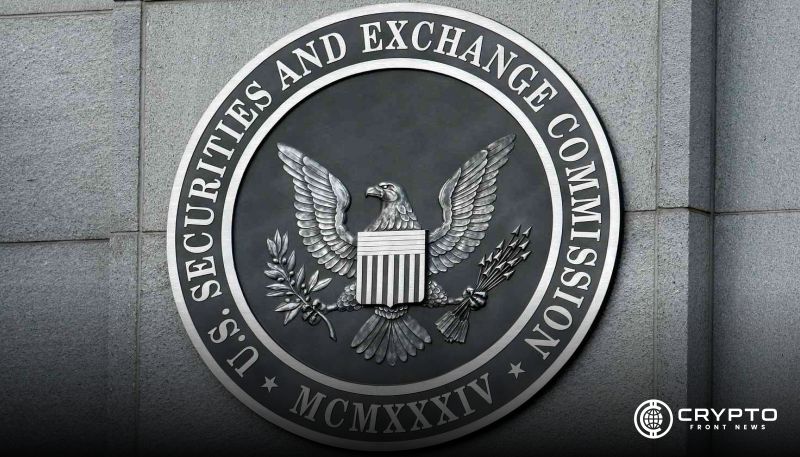- SEC charges PGI Global founder Palafox in $198M Ponzi scheme, citing misused investor funds and false crypto trading claims.
- SEC and DOJ coordinate civil and criminal charges against Palafox; misappropriated funds used for luxury goods and real estate.
- PGI Global shut down in the UK for fraud; US-UK regulators continue global crypto enforcement under revised oversight strategy.
The United States Securities and Exchange Commission (SEC) has charged Ramil Ventura Palafox, the founder of PGI Global, for orchestrating a $198 million Ponzi scheme. The federal agency alleges that Palafox promoted PGI Global as a legitimate cryptocurrency and foreign exchange trading platform from January 2020 through October 2021, promising investors high returns through “membership” packages.
According to the SEC’s complaint, Palafox used investor funds for personal expenses and diverted over $57 million to purchase luxury cars, real estate, and other high-end items. The scheme operated by using funds from new investors to pay earlier participants, a structure consistent with Ponzi operations. The fraudulent activity continued until PGI Global collapsed in late 2021.
Misuse of Funds and Misrepresentation of Trading Operations
The SEC detailed that PGI Global offered multi-level marketing incentives to encourage recruitment of new investors. The promised returns were based on purported profits from crypto and forex trading, which, according to the agency, never occurred. Instead, Palafox channeled a large portion of the funds for personal gain.
Scott Thompson, Associate Director of the SEC’s Philadelphia Regional Office, stated that Palafox falsely claimed sophisticated trading operations to attract investments. SEC investigators uncovered that PGI Global operated without genuine trading strategies and that no substantial business activities supported the guaranteed returns marketed to investors.
Laura D’Allaird, Chief of the SEC’s Cyber and Emerging Technologies Unit, said Palafox used the image of technological advancement, including claims of AI-powered auto-trading platforms, to support fraudulent schemes. The SEC’s complaint includes allegations that Palafox violated multiple provisions of federal securities law.
Legal Action and Parallel Criminal Proceedings
A civil case filed by the SEC exists at the U.S. District Court for the Eastern District of Virginia. The SEC requests that Palafox return his profits alongside civil penalties and demands a permanent bar that prevents him from doing future securities-related multi-level marketing business activities.
Besides the civil proceedings led by the SEC the U.S. Department of Justice has initiated criminal charges against Palafox through wire fraud along with unlawful monetary transactions and money laundering offenses. The criminal proceedings happen at the U.S. Attorney’s Office for the Eastern District of Virginia.
The complaint also names several individuals and entities as relief defendants. These include BBMR Threshold LLC and several of Palafox’s relatives, including his wife Marissa Mendoza Palafox, his brother-in-law Darvie Mendoza, and Linda Ventura. According to the SEC, these parties received funds and assets acquired through the scheme, including vehicles and real estate.
Authorities in the United Kingdom also acted against PGI Global. In 2022, the UK High Court ordered the shutdown of its UK division after it was found to be operating a similar scheme that promised returns of up to 200%. Investigators in the UK concluded that the company misappropriated over $700,000 in funds, with a portion spent on luxury goods and the remainder diverted to personal accounts.
The UK case revealed that Palafox did not cooperate with local authorities, and the entity known as Praetorian Group International Trading Inc., tied to PGI Global, had its website seized by U.S. law enforcement.
SEC’s Broader Regulatory Agenda and Crypto Oversight
The case against Palafox marks the first major crypto-related enforcement action under newly appointed SEC Chair Paul Atkins. Under Atkins’ leadership, the agency has shifted focus toward fraud and misrepresentation cases involving digital assets. The SEC has indicated that it will move away from broad regulation by enforcement and instead concentrate on clear violations of securities law.
The restructuring of the agency’s priorities began under former acting Chair Mark Uyeda. These reforms included replacing the Crypto Assets and Cyber Unit with the Cyber and Emerging Technologies Unit, and the establishment of a Crypto Task Force aimed at developing comprehensive digital asset regulations.






